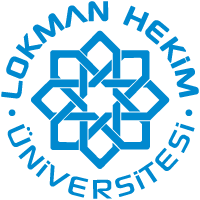In vitro analysis of the renin-angiotensin system and inflammatory gene transcripts in human bronchial epithelial cells after infection with severe acute respiratory syndrome coronavirus.
Tarih
2020-04-25Yazar
Turk, Can
Turk, Seyhan
Temirci, Elif Sena
Malkan, Umit Yavuz
Haznedaroglu, Ibrahim Celalettin
Üst veri
Tüm öğe kaydını gösterÖzet
Introduction: Severe acute respiratory syndrome coronavirus 2 (SARS-CoV-2) is a recently identified coronavirus family member that triggers a respiratory disease similar to severe acute respiratory syndrome coronavirus (SARS-CoV). SARS-CoV and SARS-CoV-2 are very similar to each other in many respects, such as structure, genetics, and pathobiology. We hypothesized that coronaviruses could affect pulmonary tissues via integration with the critical immune genes after their interaction with renin-angiotensin system (RAS) elements. The aim of the present bioinformatics study was to assess expression changes of the RAS and non-RAS genes, particularly immune response genes, in the lung epithelial cells after infection with SARS-CoV.
Methods: Linear regression, hierarchical clustering, pathway analysis, and network analysis were performed using the E-GEOD-17400 data set.
Results: The whole-genome expression data of the lung epithelial cells infected with SARS-CoV for 12, 24, and 48 hours were analyzed, and a total of 15 RAS family and 29 immune genes were found to be highly correlated with the exposure time to the virus in the studied groups.
Conclusion: RAS genes are important at the initiation of the infections caused by coronavirus family members and may have a strong relationship with the exchange of immune genes in due course following the infection.
Aşağıdaki lisans dosyası bu öğe ile ilişkilidir:

DSpace@LokmanHekim by Lokman Hekim University Institutional Repository is licensed under a Creative Commons Attribution-NonCommercial-NoDerivs 4.0 Unported License..














